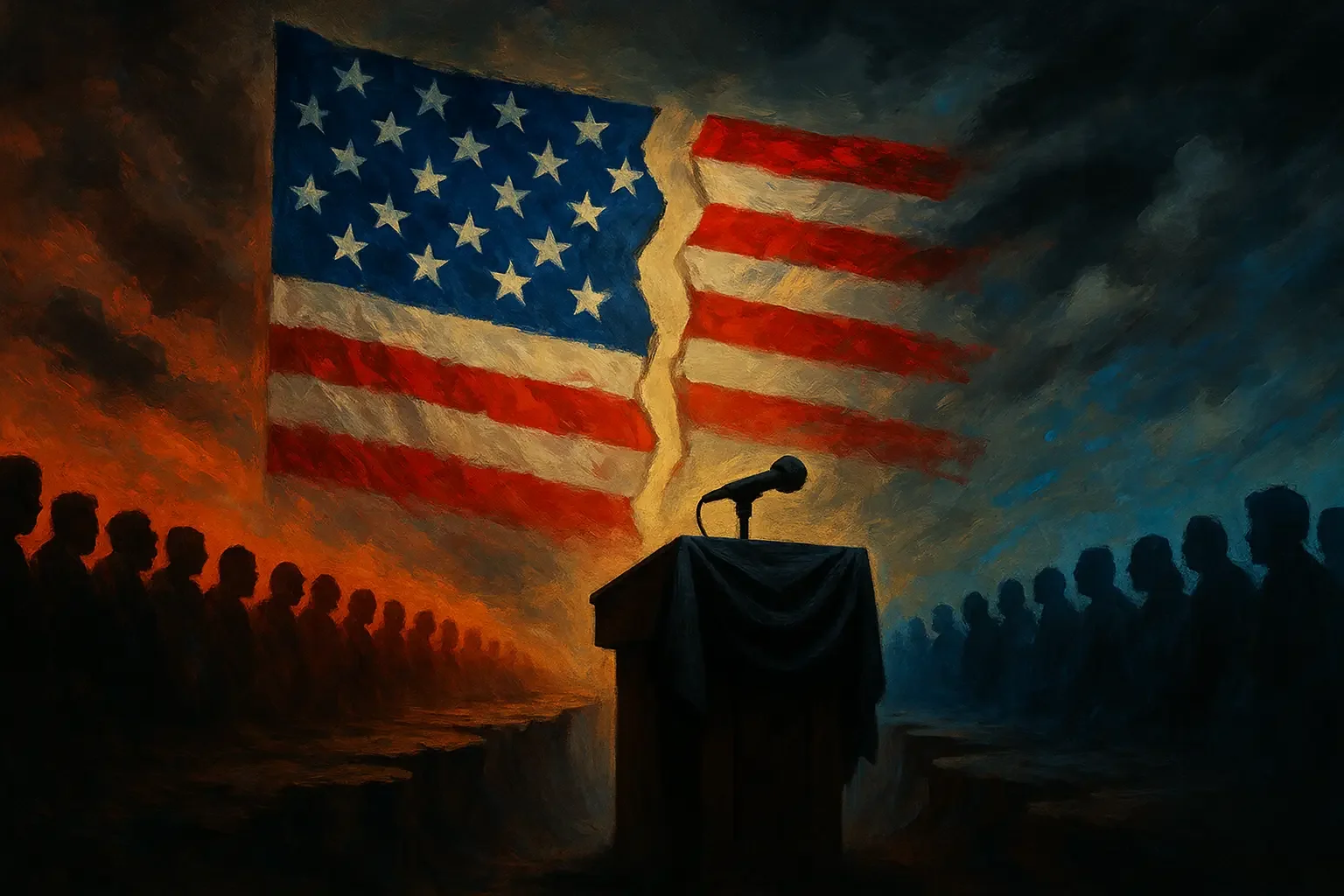How Civil Wars Start
Charlie Kirk's broadcast murder is jarring. We are not, in our snug, safe liberal societies, used to seeing assassinations of high profile figures being carried out in broad daylight. Even in the United States, where this level of violence is more habitual, is its seriousness diminished in anyway. From a European perspective, it is entirely alien and, unfortunately, here we're more likely to view it as yet another case for tighter gun legislations. However, this perspective will be a distraction from the real danger that this assassination actually represents.
I was never much of a fan of Charlie Kirk's brand of conservatism. He frustrated me over the war in Ukraine and his association with the recrudescent isolationism in the United States. Neither was I much of a fan of his traditionalism which I regarded as more of a reactionary response rather than based on true conservative principles. I never liked his provocative rhetorical style nor could I ever been onboard with a more simplistic view he appeared to hold on many of the issues concerning both foreign and domestic policy.
But this, after all, is the point.
Though I was annoyed with the majority of what Kirk had to say, the reality is that he did force me to better cultivate many of my own beliefs for the weaknesses that were uncovered in them. In many cases, upon watching his interactions with college students, in debates, and on social media, the intense dislike that I felt while listening to his arguments were not directed at him but actually for being challenged; I was more irritated at the fact that I was being made to think better about my own opinions.
Kirk was doing democracy the right way. Provocative, yes. Tactful, no. But it was essential that a point of view shared by at least half the American population was being heard on campuses that students are rarely exposed to in an unbiased way. In going around and talking to students face-to-face, Kirk was practicing a form of political engagement that has been mostly abandoned within the last decade or so. With everyone becoming less comfortable with physical interaction, we are only being introduced to new ideas from the comfort of our own minds and not through actual (and necessary) confrontation. This is a practice as old as Socrates, and Kirk was a natural at it.
Kirk's assassination would have been a historical watershed, whatever the motive. It seems like United States has almost been waiting with bated breath for something like this to happen. Waiting for a spark to set everything off and tumbling down. The tension since Trump's return to the White House and his controversial style of rule both at home and abroad has intensified the already critical political polarization that has gripped America for the last decade. Deep seated hatreds from both left and right have pervaded all aspects of American life at this point, and it has been constantly getting worse.
Politics, not just in the US but in Europe and the rest of the world as well, has been breaking down as more people are becoming either indifferent or radicalized. Social media, rage-bating, biased and false headlines, has created a terrible sensation of uncertainty around all social and economic issues, and consequently people have been trapping themselves in a ceaseless void of emotions, resulting in profound feelings of mistrust toward political opponents. The breakdown of real debate and the rise of demagoguery and political marketing campaigns have produced these collective neuroses that are comparable to what emerged during the dark days of the 1930s and 1940s.
And this is the real possible result that could happen in the US from Charlie Kirk's murder. Though in many ways we are protected by our knowledge of history, the growing political sectarianism is following dangerous patterns that are reminiscent of pre-war Europe. Regardless of the reasons for the (now-caught) 22-year-old assassin, the image of a conservative being killed whilst defending free speech will confirm the idea of an intolerant left in the eyes of many who were on the fence about Trump, and push those who were against him further toward supporting him. The feelings of revenge after such a public murder, especially with his wife and children present, can only fire up the resolve of many on the right to take some sort of radical action.
These are the moments that have sparked many a civil war, from the Spanish to the Lebanese.
On the other side, the almost universally acknowledgement in all newspapers of this fact has been comforting. Though social media may be plagued with all sorts of nasty cynicism, the condemnation of Charlie Kirk's murder indicates that this tragedy could go in one of two ways. Either it catalyzes the hideous political sectarianism and escalates into something much worse. Or it makes everyone stop and think about where this is really going. It could, conceiveably, let people glimpse a darker future where politics is dead and carried on by other means. It was a line crossed, and is the moment for Americans to stop and consider whether they want to continue down this dark road, or turn back and start actually talking to one another again.
Whatever they decide, the rest of the world is waiting just as anxiously.


